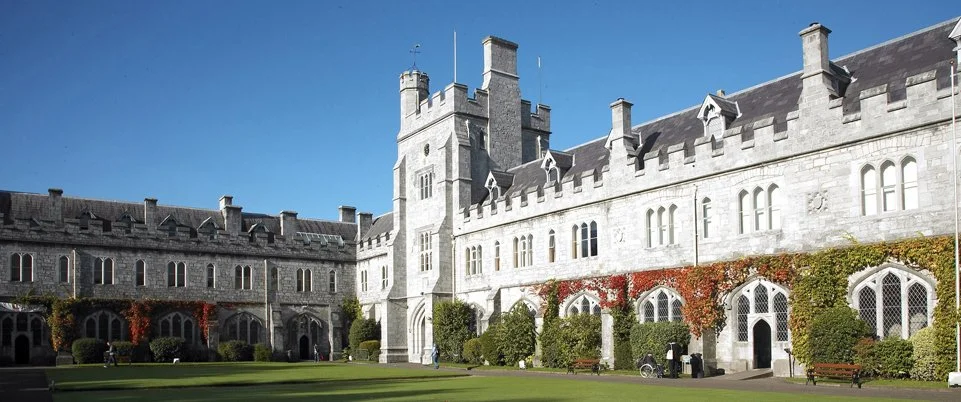Just 10 per cent of students know how to report sexual misconduct to college, USI survey finds
Some 60 per cent of students would not know where to get help on campus if they or a friend experienced sexual misconduct, a survey by the Union of Students in Ireland (USI) and NUI Galway has revealed. The Sexual Experiences Survey heard from over 6,000 students about their experiences of sexual violence and harassment from across twenty-one third level campuses. It is the first survey of its kind in eight years, and the Minister for Higher Education Mary Mitchell O’Connor said at the Zoom launch of key findings that she found the results “sobering.” 29 per cent of female, 10 per cent of male, and 28 per cent of non-binary students reported non-consensual penetration by incapacitation, force, or threat of force during their time in college. Of those who reported the above, 49 per cent of males, 35 per cent of females, and 25 per cent of non-binary students had never shared their experiences before taking the online survey.The experience of sexual harassment increased for students as they progressed through college, rising from 50 per cent in first year, to 62 per cent in second year, to 66 per cent in third year or above.The findings concluded that over 70 per cent of respondents who experienced sexual misconduct did not understand what happens when a student reports an incident to their college. Just 10 per cent of students understood how actually to report an incident. In speaking to University Express, UCCSU Welfare Officer Jamie Fraser gave his perspective on the survey findings, and what they mean for the university and its community.“This report provides us with a basis on which to tackle the issues surrounding sexual harassment not only across higher education institutions but also our country as a whole. No student of UCC should live in fear of being sexually assaulted,” he said.“By drawing a clear, concise plan and addressing this issue head on, the Students' Union and UCC as a whole can make strides to making this university and the wider community a safer space for students. Survivors,” he concluded, “we believe you and stand with you.”For Dr. Louise Crowley of UCC’s Bystander Intervention Programme, the results of the survey are “sobering but not surprising.”At UCC, preventative initiatives include the facilitation of SMART Consent workshops by UCC Feminist Society and the Bystander Intervention Programme led by Dr. Louise Crowley. The latter of which is available as six one-hour blended-learning workshops to provide students with an understanding of issues relating to sexual and domestic violence, as well as developing key intervention skills. According to the Sexual Experiences Survey, less than 5 per cent of those who had no engagement with consent workshops or bystander initiatives had received information on the definitions of sexual misconduct, on how to report, and where to get help. Without ensuring all students access the preventative initiatives on campus, UCC Feminist Society said in a statement that victims “will continue to be silenced” if not provided with this information. “We have spent years working on our consent campaign,” the society said, “however, as one society there is only so much we can do.”“This is not a problem the college can continue to sweep under the rug and instead must engage with these results and start taking serious action.”Speaking with Dr. Louise Crowley, who has worked on the Bystander Intervention Programme since 2016, she is optimistic that there is a willingness to change, especially now that this survey has given an insight into “what’s happening with UCC, UCC students, and understanding the needs of students.”There is currently no clear path for students at UCC who would like to report sexual misconduct, but Dr. Crowley assures that this is a part of her two-year plan for a cross-campus response to sexual violence.“UCC is the only institution to be granted funding of €350,000 to implement this plan, which includes investigation processes and online reporting systems,” Dr. Crowley says. Student-led initiatives, new policies for sexual harassment, and disclosure training for staff, will also be implemented to ensure the college addresses the gaps in supports shown by the survey. While curating the institution’s response to the prevalence of sexual violence and harassment on campus, Dr. Crowley hopes that “this data will help focus the minds of students on the problem and encourage a greater buy-in for programmes like Bystander Intervention so that students can be encouraged to have these conversations amongst themselves. The education must be louder.”The Sexual Experiences Survey was completed in response to the launch of the 2019 Consent Framework for Consent in Higher Education Institutions by Minister Mary Mitchell O’Connor. Its findings will be used to greater understand the needs of all students in addressing issues of sexual violence on and off campus. ______________________________________________________________________________If you have been affected by the content of this article, the national 24-hour Rape Crisis helpline is 1800 77 8888. The Sexual Violence Centre Cork is contactable by Freephone 1800 496 496, and by text 087 1533393. The Student Union Welfare Officer is available at welfare@uccsu.ie. You can enroll in the Bystander Intervention Programme here.


